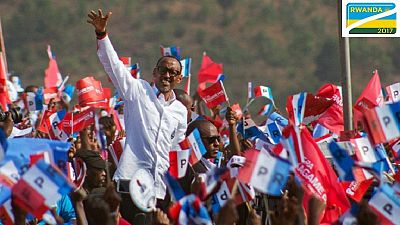The electoral process for Rwanda’s July 2024 General Election has been hailed as one of the best-organized by the East African Community (EAC) Election Observation Mission.
The head of the mission, Chief Justice (Emeritus) David K. Maraga, praised the peaceful and orderly conduct observed throughout the election period, especially on polling day.
“The electoral process was very orderly, very peaceful, very organized. In fact, one of the best-organized electoral processes I have seen, especially on polling day; it was commendable. And in our report, we have mentioned that,” Maraga stated. “In the final report, we are going to mention that. The organization was super. And we have seen some elections in some places which are chaotic. They are loud, noisy, even at the polling stations on polling day; that was not here at all. And my people gave me information from all the polling stations that there was no dancing, there was no noise generally.”
The EAC Election Observation Mission, constituted by 55 members from various East African nations, including representatives from the East African Legislative Assembly, Electoral Management Bodies, and Civil Society Organisations, carried out a comprehensive assessment of Rwanda’s electoral process.
From June 24 to July 1, 2024, the mission conducted a pre-election technical assessment, evaluating the preparations made by institutions and stakeholders involved in the election.
Between July 12 and 16, the mission deployed 14 teams across Rwanda’s 30 districts, observing the polling process in 168 polling rooms. Their preliminary findings highlighted several key points.
Campaigns, starting from June 22, 2024, were conducted in a calm and peaceful environment, allowing candidates to campaign freely.
The public media provided balanced and fair coverage for all presidential candidates. The National Electoral Commission (NEC) made adequate preparations and maintained transparency throughout the election process.
Polling rooms generally opened on time, with essential election materials present. Polling stations were free from visible campaign activities and materials. Security personnel were professional and did not interfere with the electoral process.
Election officials displayed high levels of competence, with significant involvement of young people and women in managing the electoral process. Polling rooms closed on time, and voters in the queue were allowed to vote.
The mission also noted isolated incidents, such as polling officials attempting to reopen voting after closure and cases where the number of votes exceeded the registered voters in some stations. Recommendations were made to address these issues in future elections.
The EAC Election Observation Mission recommended that all stakeholders in Rwanda’s elections maintain peace and embrace the peaceful resolution of disputes post-election.
They also urged the NEC to extend the campaign period to at least 30 days and address discrepancies in voter tallies through better training of election officials.
Chief Justice (Emeritus) David K. Maraga concluded, “Given the history of this country, the well-organized electoral process without a single incident of violence brought to our attention is a remarkable milestone in the country’s transformation.
The EAC Observer Mission is happy to record that the way the 2024 Rwandan general election was conducted, availed the people of Rwanda an opportunity to choose their leaders. We congratulate the people and the government of Rwanda as well as all stakeholders for these peaceful elections.”
Justice Minister and Attorney General, Dr. Emmanuel Ugirashebuja, explained that the increase in voter turnout and instances of votes exceeding registered voters were due to NEC regulations allowing voters to be placed in “umugereka” (annex) if they provided valid reasons for not voting where registered. He also mentioned that voters arriving just before closure were allowed to vote, a common practice in many democracies.
The preliminary report underscores Rwanda’s commitment to democratic principles and highlights areas for further improvement in its electoral processes.
The final report is expected to provide more detailed insights and recommendations.




















